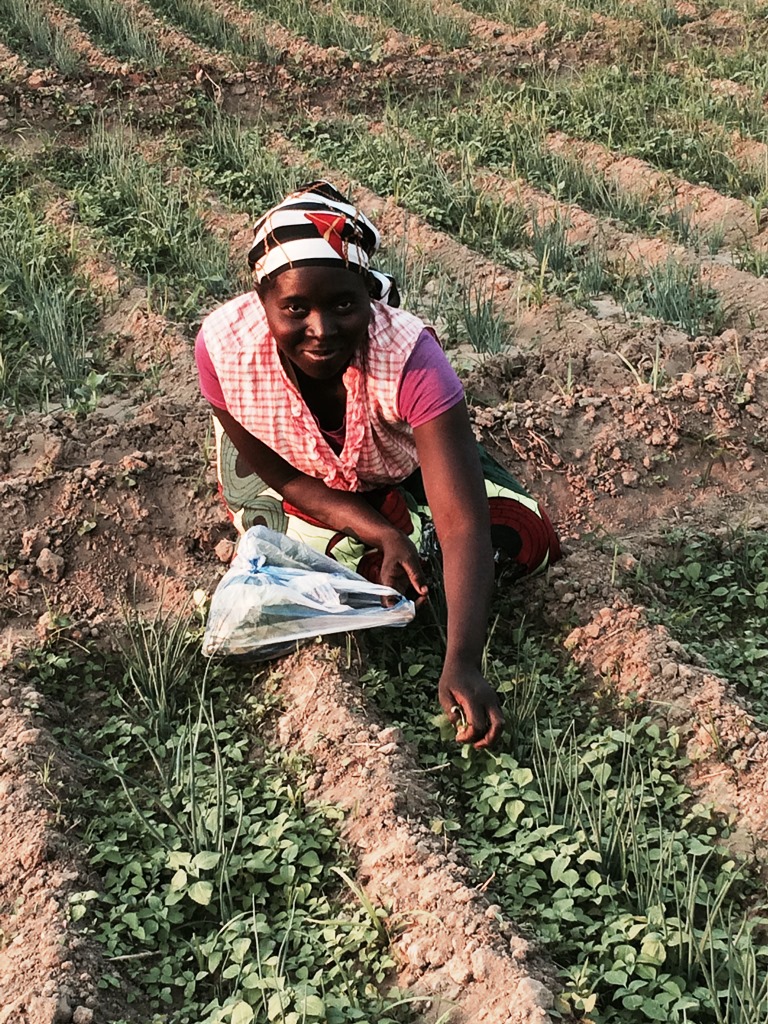Resilience and Livelihoods
What we want to do
In Angola, we want to see:
- All adolescents develop hope and skills for a productive future
- Families and children who have a reason and the resources to be in school
- Children who are well-nourished and free from hunger so they can prepare for the future instead of struggling to survive today
- Families have adequate and resilient livelihoods, income and assets to meet their needs
What’s the problem?
- Many Angolans are still deprived of their right to an education. The lack of education and recreational centers, in particular, has led to an increase in early marriages and pregnancies which has also contributed to a high child mortality rate (one of the highest in the world at 150/1,000).
- 27% of young people are illiterate, and in rural areas, this increases to 60%.
- Only 2% of rural girls attend secondary school, rising to 28% of girls living in urban areas.
How is World Vision addressing the issues?
Not only are we working with families to ensure children and families have enough food to eat to meet their nutritional needs by increasing crop and livestock production and productivity, but we are also partnering with parents and communities and encouraging them to diversify their incomes with non-agricultural related activities. Finally, we are equipping families traditionally excluded by financial institutions with the tools to save for and invest in their futures through the implementation of savings groups.
What is World Vision doing?
WVI in Angola works in the area of economic development with particular emphasis on reducing inequities in access to productive resources, particularly land and credit. In this sense, World Vision International - Angola has been supporting, since 2014, approximately 600 women entrepreneurs in the Municipality of Porto Amboim, organized in 40 savings and credit groups. These groups are active and functional, mobilize their savings on a regular basis, grant internal credits and have links with banks to access microcredit. At present, these groups have achieved a combined capitalization of approximately USD 50,000. Women who have increased their businesses, who have created their small shops, hair salons, confectioners and clothing confectioners, created 157 jobs.
WVI in Angola also provides assistance and encourages dialogue between governments and communities to improve the security of smallholder land. With two projects running since 2014, both funded by the European Union, WVI in Angola aims to strengthen the capacities of civil society and the state for the effective recognition, use and management of land in rural communities. Up to date, these actions have contributed to ensuring secure land tenure for more than 30,000 people.
WVI in Angola works to strengthen Angolan civil society through different projects. The approach adopted emphasizes the importance of creating and strengthening technical and organizational capacities of community groups, churches and associations of producers, with the ultimate aim of allowing the participation of the citizens in the public spaces of debate, and making the voice of the most needy to be heard. These actions are increasingly important in the current national context, where various responsibilities and functions currently carried out by the Government at the central level will be smoothly delegated to the State Local Administrations. In this context, the engagement of civil society is fundamental to complement the actions of the State, as recognized in several points of the National Development Plan (NDP) 2018-2022, where it is emphasized that "the State needs representatives from the civil society, organized and able to participate in solving the problems of the country, especially at local level, with their better knowledge of the reality of the communities".
What’s the impact?*
- In 2015, only 14% of households in the areas where we are working had sufficient diversity in their diets to meet the nutritional requirements of their children. Although there is still more work to be done, we are celebrating that as of 2017, 53.46% of families now have sufficient diversity in their diets. We have also seen a 25% reduction (from 44% in 2015 to 19% in 2017) in the number of families who had at least one hungry month (a month without sufficient food resources) between 2015 and 2017.
- WVI Angola works to strengthen civil society in a transversal way in almost all projects, and specifically, through two initiatives, one in the Province of Huambo and the other in the Provinces of Bié, Uige, and Moxico, reaching globally 138,576 beneficiaries, including 96,798 children.
- By 2018, the Project made women financially independent and economically empowered, and empowered to make decisions for themselves, their children, the family, and society. The training provided by the project have benefited 24,477 people (including 5,429 children).
Related Resources:
- Learn how our teams are using seeds to help fight malnutrition among vulnerable children in southern Angola.
- See how microcredit and women entrepreneurs are stimulating the economy in Angola
